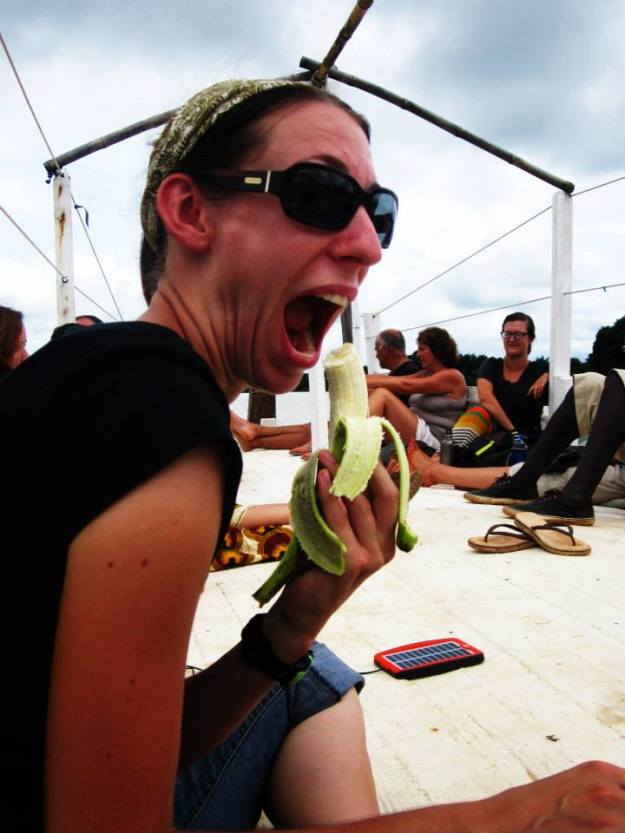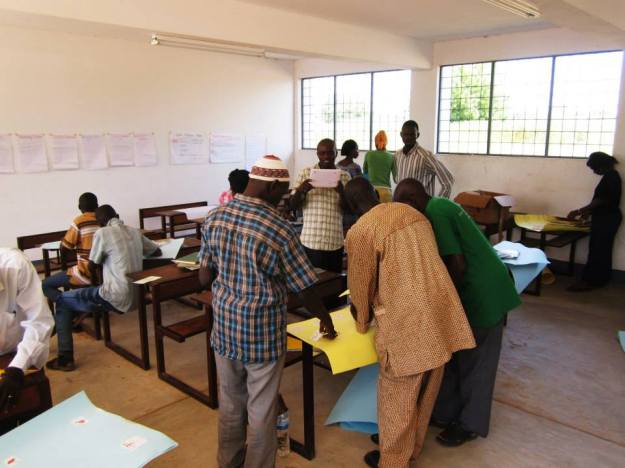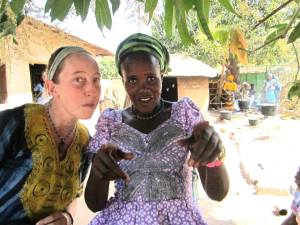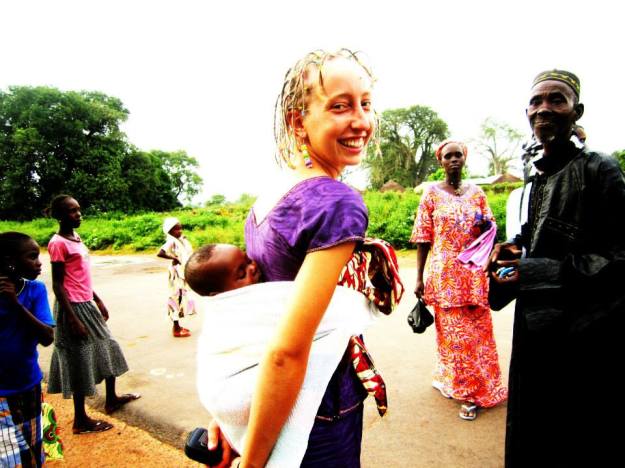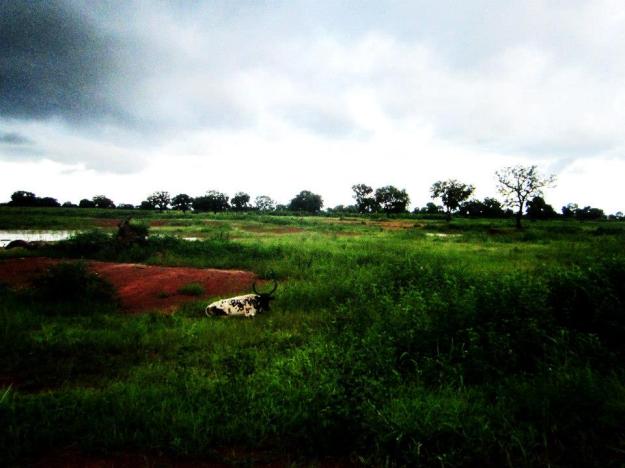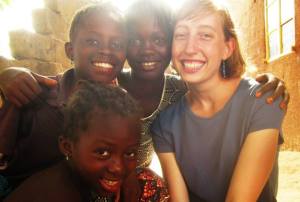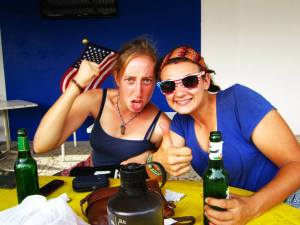‘Twas three days before Christmas and the Sallah Family
All had their hearts set on finding the perfect tree.
Just a walk in the bush, it didn’t take long
The tree was small but mighty, scrawny yet strong
Machete in hand, it only took a few whacks
Before the children were toting it home on their backs
Without snow, holly, or nog for the usual decoration
The Sallah children set to work with their odd ornamentation
Tinsel, garland, and lights were not close at hand
So pipe-cleaners and streamers made their tree grand
The work was all done, now the children sat to admire
While mom cooked Christmas rice over the open fire
Soon Jerreh arrived with his host-father, what a guy!
Whose gift made Christmas dinner a cheery shrimp fry
Shelling shrimp and chatting while the sun, it did creep
Soon evening came and the children started to sleep
Yassin slipped away to her hut with a curious smile
And returned with duplos and toy animals heaped in a pile

To our small country in Africa, Santa had found his way
How lucky we were that the package arrived before this day!
Thanks to Ma Bambi and Ba Juka, Christmas reached the Sallah compound
And every year will fond memories of the Bowmans come ‘round
This Christmas night, every person was given gifts and well fed
Whispering prayers and “Santa, a jarama!” on their way off to bed
Though Christmas was over, our spirits did not fall
Each day toys a plenty, plus a New Year’s Day ball
So from our Gambian family to all who may hear,
Merry Christmas to all and a Happy New Year!


